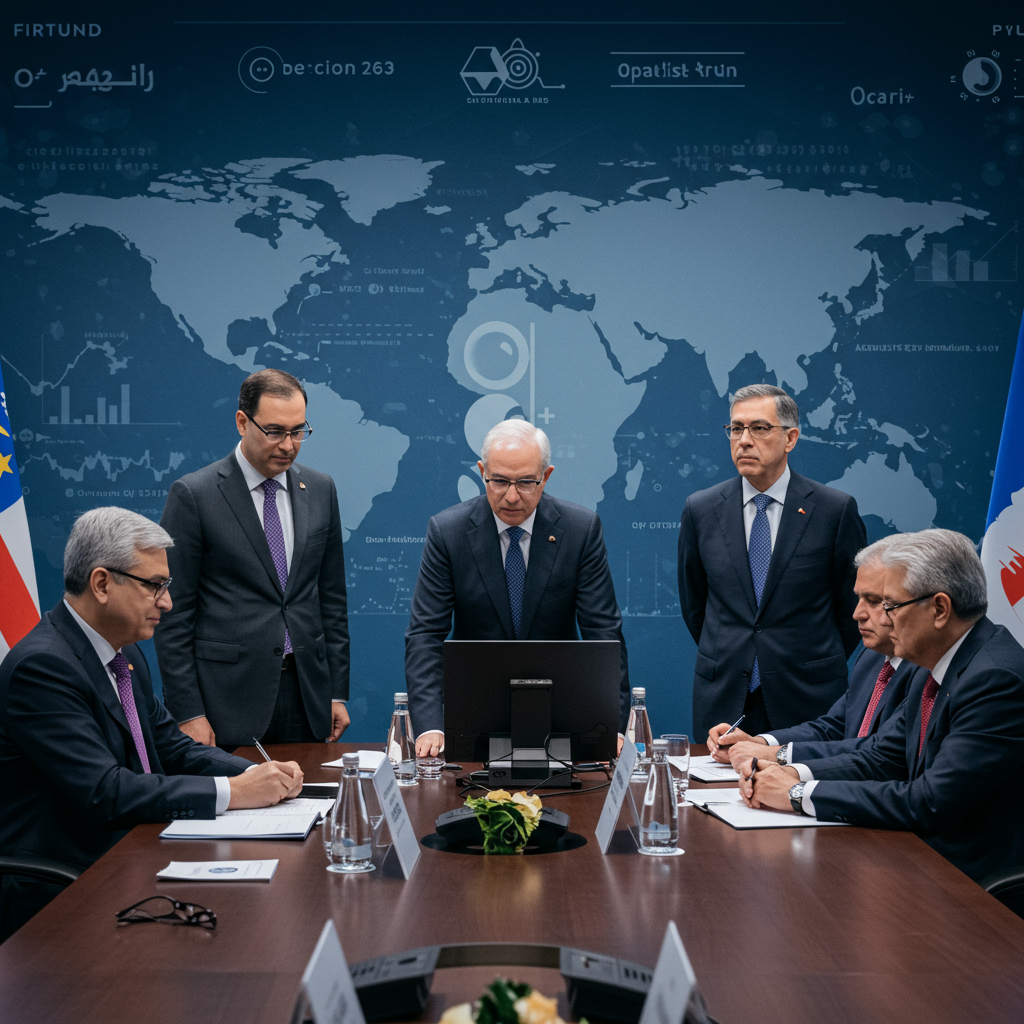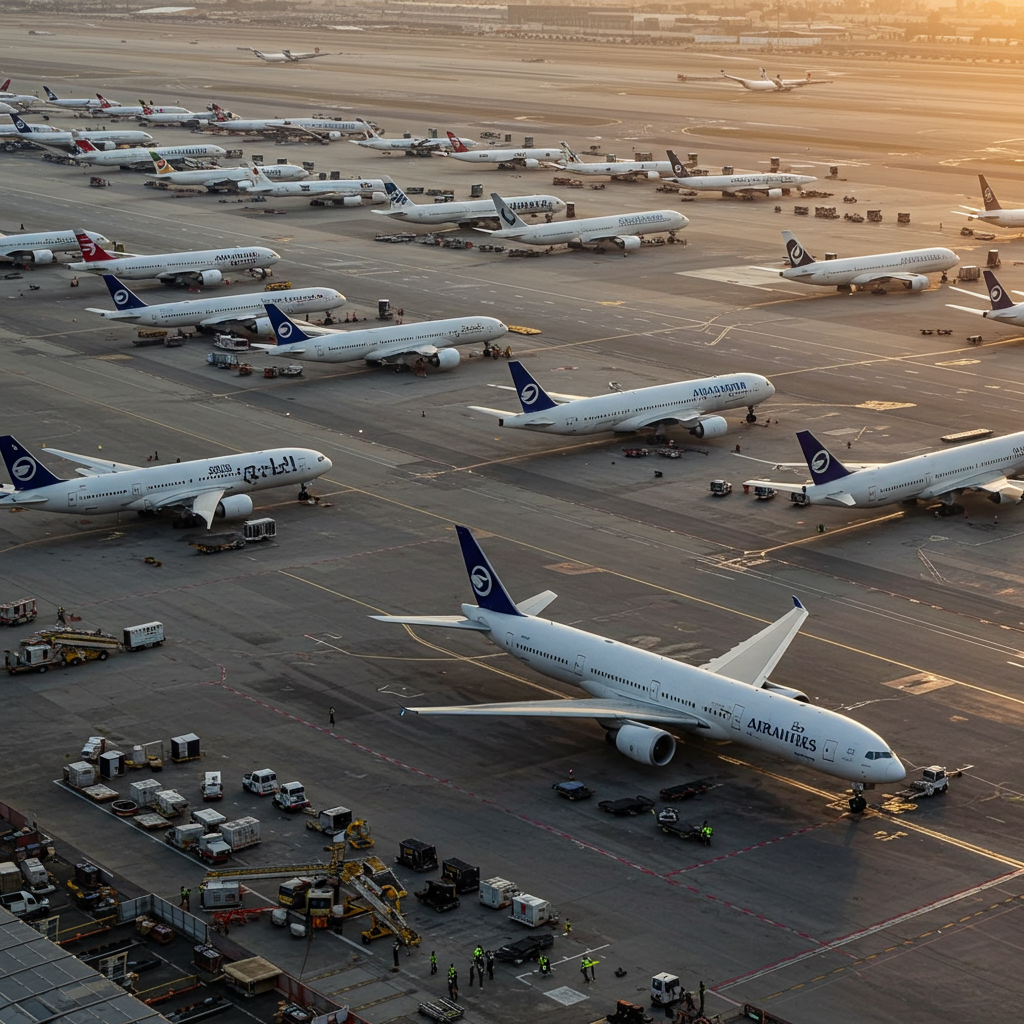President Donald Trump recently hosted leaders from five African nations – Gabon, Guinea-Bissau, Liberia, Mauritania, and Senegal – at the White House for a three-day summit. This gathering marked a notable moment in US foreign policy. Unlike previous large-scale forums involving many African heads of state, this event was focused and targeted. The White House framed it as an “incredible commercial opportunity,” highlighting a distinct shift in America’s approach to the continent. Why were these particular countries invited? The reasons are multifaceted, revealing a strategy driven less by traditional aid and more by transactional interests centered on trade, security, and geopolitical competition.
A Paradigm Shift: “Trade, Not Aid” Takes Center Stage
The central theme of the White House summit was President Trump’s definitive “trade, not aid” policy towards Africa. This represents a significant departure from the development-focused strategies of past administrations, particularly Democrats. Historically, US policy prioritized poverty reduction and development through aid programs and initiatives like the African Growth and Opportunity Act (Agoa). Agoa grants duty-free access to the US market for eligible African goods. Under the current administration, doubt surrounds Agoa’s renewal later this year.
The new approach is characterized by analysts as purely transactional. It’s described as a “give and take, win and win” model. This shift was previewed by a recent peace deal brokered by the White House between DR Congo and Rwanda. Analysts suggest this deal served as trade diplomacy. Its underlying aim may have been to secure US access to lucrative mineral resources in the region. For the five invited leaders, this summit offered a platform to negotiate terms. They face existing 10% tariffs on goods exported to the US. Securing deals to lower this rate was likely a key objective.
Resources: The Strategic Quest for Critical Minerals
One primary driver behind the invitations is the strategic importance of Africa’s natural resources. With increasing global competition from rivals like China and Russia, access to critical minerals and raw materials is a priority for the US. The invited countries, while not major economies, possess significant mineral wealth. These include gold, oil, manganese, gas, wood, zircon, uranium, and rare earth elements.
Gabon, for instance, holds approximately a quarter of the world’s known manganese reserves. This mineral is essential for producing batteries and stainless steel. Gabon is already a major supplier of manganese to China. It also boasts strategic minerals like uranium and oil. Its location along the Gulf of Guinea is highly significant. Mauritania and Senegal also have commercially important minerals like gold, iron ore, phosphates, and potential oil/gas reserves. Securing investment opportunities and access to these resources appears central to the US strategy. Gabon’s President Brice Clotaire Oligui Nguema directly encouraged US investment. He warned that “other countries might come instead” if the US did not.
Security Concerns: Maritime Threats and Migration Routes
Security was another crucial element underlying the invitations. The Gulf of Guinea is a major shipping route for oil and gas tankers. It has also been a piracy hot spot for years. Maritime security and combating “maritime terrorism” in this region are growing concerns for the US. Gabon’s extensive coastline (about 800km) along the Gulf positions it as strategically important. There is even speculation that Gabon could potentially host a planned US military base in the region.
Migration policy is also a critical point of discussion, particularly with Mauritania and Senegal. Both nations are key departure points for illegal migration routes. Thousands of young Mauritanians and hundreds of Senegalese have recently traveled through Central America to reach the US border. This makes them directly relevant to President Trump’s migration agenda. Visa overstay rates are another issue on the table. Gabon and Liberia have higher overstay rates than countries recently subjected to US travel restrictions. Liberia, with its historical ties to the US, has reportedly been approached about potentially accepting deportees, including criminal offenders, as part of a migration agreement.
Geopolitical Competition: Countering China and Russia
The summit cannot be viewed in isolation from the broader geopolitical rivalry in Africa. China is Africa’s largest trade and investment partner. Russia is also deepening economic and military ties across the continent. The US sees its influence declining in some areas, especially in the Sahel region. Military juntas in Burkina Faso, Mali, and Niger have expelled Western forces and turned towards Russia for security support.
Against this backdrop, strengthening relationships with strategically located countries becomes vital for the US. Access to critical resources counters Chinese dominance in supply chains. Securing port access or establishing military footprints helps project power in key regions like the Gulf of Guinea. The invitations signal a US effort to re-engage strategically. It aims to counter the growing presence and influence of rivals on the continent.
Diplomatic Nuances and Leaders’ Objectives
For the African leaders, the invitation itself was significant. Guinea-Bissau’s President Umaro Cissoko Embaló called it a “diplomatic triumph.” His country had previously been labeled a “narco-state.” The invitation served as validation of its improved standing. The leaders also used the platform to appeal directly to President Trump and US investors. They highlighted their resources and development projects. Senegal’s President Bassirou Diomaye Faye spoke about building a “tech city” in Dakar. He directly invited American investors to participate.
Meetings included moments of notable flattery towards President Trump. Leaders praised his leadership and even suggested he deserved a Nobel Peace Prize. President Faye complimented Trump’s golf skills. He invited him to build a golf course in Senegal. This approach mirrors tactics used by other foreign leaders interacting with Trump. They seek to build rapport and secure favorable terms. However, the success of such tactics is not guaranteed. A recent meeting between Trump and South African President Cyril Ramaphosa reportedly led to a breakdown in relations and new tariffs on South African goods. The invited leaders were likely seeking to avoid a similar outcome. They hoped to leverage their specific strategic value to secure investments or trade concessions under the new transactional framework.
Lingering Challenges and Skepticism
Despite the high-level attention, skepticism remains regarding the tangible benefits for the African nations involved. These countries face significant challenges. Guinea-Bissau has a history of coups and political instability. Gabon recently experienced a coup. Liberia is still recovering from civil war and the Ebola epidemic. Its fragile health system relied heavily on US aid, which has been cut. Mauritania is the only one of the five without diplomatic ties to US ally Israel. Sources suggest restoring these ties could be a sticking point for a deal.
Analysts note that the focus is firmly on US interests: resources, security, migration control. While African leaders seek investment and trade deals, the outcome may primarily benefit the US. The meeting validates leaders facing domestic rule-of-law issues. However, it is unclear how this approach will address fundamental development needs or build long-term partnerships beyond specific transactional agreements. The summit highlights a future US-Africa relationship driven by explicit quid-pro-quo arrangements rather than broad development assistance.
Frequently Asked Questions
Why did President Trump invite these specific five African countries?
President Trump invited leaders from Gabon, Guinea-Bissau, Liberia, Mauritania, and Senegal due to a combination of strategic interests. These countries, while not the largest African economies, hold valuable natural resources like rare earth minerals and manganese. Their locations are critical for maritime security, particularly in the Gulf of Guinea, and some are key departure points for migration routes impacting the US. Additionally, the meetings provide diplomatic leverage and potential political validation for leaders facing domestic challenges, fitting a transactional “trade, not aid” model.
What does President Trump’s “trade, not aid” policy mean for US relations with Africa?
The “trade, not aid” policy signifies a fundamental shift in US engagement with Africa. It moves away from traditional foreign aid and development assistance, which the administration views as wasteful. Instead, the focus is on fostering commercial opportunities and securing deals based on mutual benefit, often through transactional agreements. This includes prioritizing access to resources, trade deals, and security cooperation. It also raises uncertainty about the future of long-standing programs like Agoa, which provided preferential trade access.
How does competition with China and Russia influence US policy towards Africa under Trump?
The growing influence of China and Russia in Africa is a key factor shaping US policy. China is a major economic partner and increasing its military presence. Russia is expanding ties in areas like security support. The US sees the summit with these five countries as a way to counter rival influence. By focusing on strategic resources and security partnerships, the US aims to protect its interests, secure supply chains, and maintain a geopolitical foothold on a continent increasingly courted by global competitors.
Conclusion
President Trump’s summit with the leaders of Gabon, Guinea-Bissau, Liberia, Mauritania, and Senegal signals a clear shift in US foreign policy towards Africa. Driven by a transactional “trade, not aid” philosophy, the invitations were strategically chosen. The focus was squarely on securing access to critical resources, enhancing regional security, managing migration flows, and navigating geopolitical competition with global rivals. While offering African leaders a platform for seeking investment and legitimacy, the outcome underscores America’s renewed emphasis on self-interest and explicit reciprocal agreements over traditional development partnerships. This new paradigm sets the stage for a different kind of relationship between the US and the African continent.



